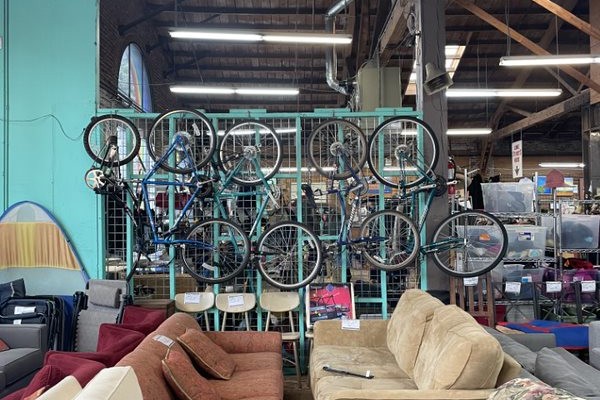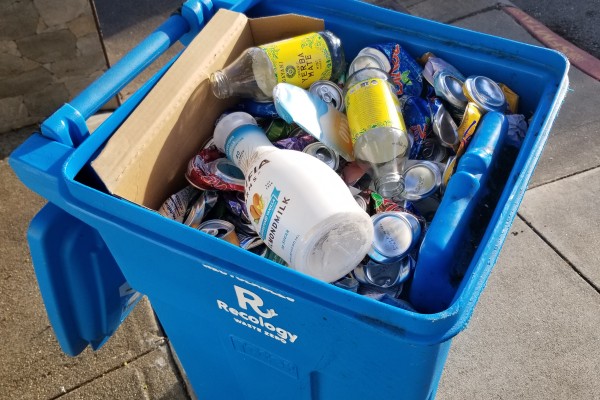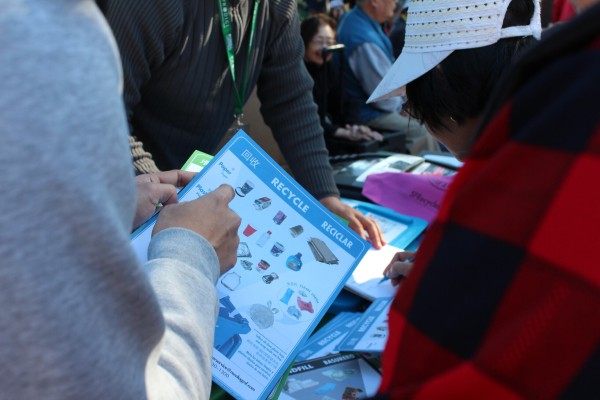Many art products contain hazardous material that should not end up in the trash, recycling or composting bins.
SF Environment wants to help you dispose of these items properly.
Many art products contain hazardous material that should not end up in the trash, recycling, or composting bins. They whould also not be poured down the drain.
If you have supplies that are usable, but you don't need anymore, send them to SCRAP which is a non-profit creative reuse center in San Francisco, or find other organizations that will reuse your art materials.
Dispose properly
Professional artists:
Call Recology SF Very Small Quantity Generator Program at (415) 330-1425.
Hobbyists:
For free disposal call Recology SF Household Hazardous Waste Home Collection Program at (415) 330-1405.
Hazardous items
These items are hazardous waste and cannot be poured down the drain or thrown in landfill:
Used and unused solvents
Solvents such as paint thinners, turpentine, mineral spirits and citrus solvents.
Rinse Water
Rinse water from acrylic and water color paint can contain plastic agents from the acrylics, or toxic elements found in pigments, which should not get in to our waterways. Store it to a closed container till you dispose of it.
Paints and Pigments
Paints (oil based and water based) contain oils, heavy metals or preservatives that are not safe to pour down the drain.
Rags and Tarps
Never put used rags in the landfill, compost or recycling bin. You can store them for disposal immersed in water in a closed container.
Do not pile or stack used rags. Do not store in plastic containers, since most solvents will dissolve the plastic.
Rags and tarps soaked with solvents are highly flammable and should be put in a metal, flame-proof container or allowed to dry in an open well ventilated space. Even when dry, these rags should be considered hazardous.
Items with Prop 65 labels
Artist supplies with Prop 65 labels contain chemical(s) known to the State of California to cause cancer. Note: There is no "standardized" Prop 65 label, so read labels closely.
Full or partly full aerosol cans
Full or partly full aerosol cans contain substances that are hazardous and must NOT go in any landfill, recycling, or composting bin. Remember that they can be donated for reuse.
Empty aerosol cans
Empty aerosol cans, when both product and propellant have been completely discharged can be recycled in your blue bin.



